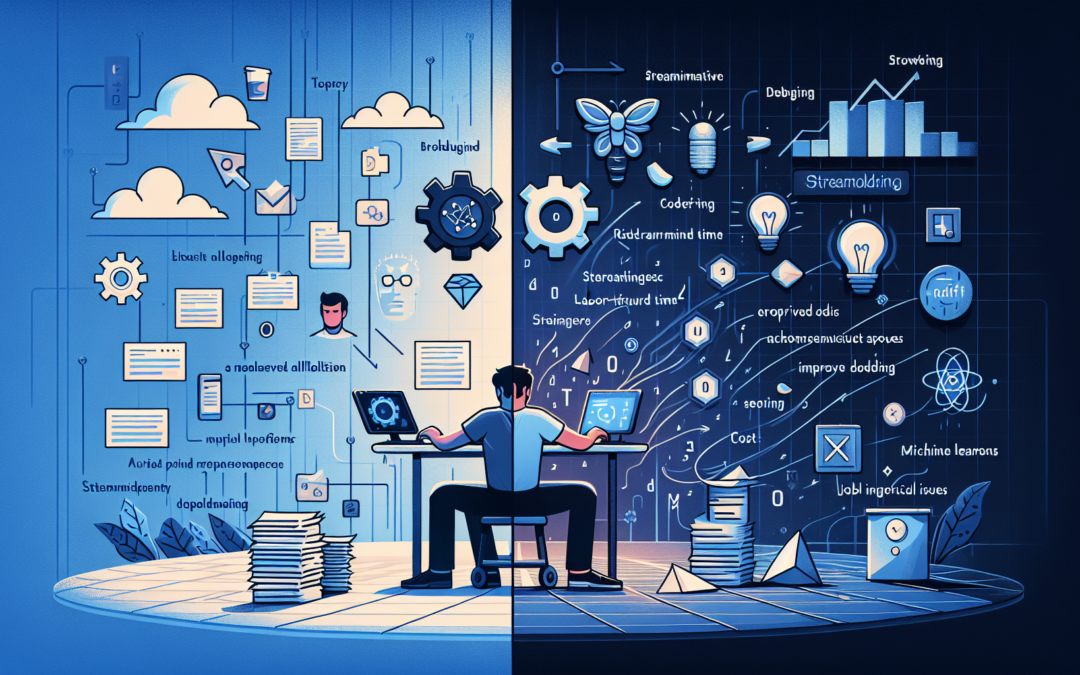AI: The Epoch of Change in Software Development
All of you might remember the time when software development used to be a lengthy, meticulous process that required intensive labor, long coding hours, and rigorous testing procedures.
Remember monolithic applications where even a minor change meant that the whole application had to be deployed again?
Or debugging sessions that continued for days because tracking down an issue was akin to finding a needle in a haystack?
These are slowly becoming things of the past, thanks to the advent of artificial intelligence (AI) in software development.
The Revolution: AI in Software Development
Artificial Intelligence is creating ripples of change in various sectors, and software development is no exception.
AI in software development refers to the use of techniques like machine learning, natural language processing, knowledge-based systems, and other similar technologies to automate the development process.
These technologies assist in everyday tasks, help coders write better code, and make debugging quicker and more efficient – all with the aim of reducing the time and resources spent in developing software.
Present Scenario: Machine Learning for Code Assistance
Today, one of the most popular uses of AI in software development is the application of machine learning techniques for code assistance.
Gone are the days when coders had to remember complex syntax or manually look for pieces of code to reuse.
Now, platforms like Tabnine and Codota use AI to predict and suggest the next line of code, making coding faster, more efficient, and less prone to errors.
Greater Heights with AI: Automated Testing
Remember how applications had to be tested threadbare to know and remove bugs or glitches?
With AI, this process has become super streamlined.
Machine learning algorithms help identify bugs quicker and more accurately, considerably reducing the turnaround time.
However, Silver Linings have a Cloud: The Cons of AI
As disruptive as AI may be, it is not without its shortcomings.
Trust in the predictions made by AI tools can sometimes lead to unreliable software if the underlying model is not well-trained.
Furthermore, the use of AI in software development is a costly affair and may not be within reach for small and medium scale companies.
Also, there is the question of job security. As AI automates many tasks, those who once performed them might risk unemployment.
AI in Software Development: The Future
Real-world problems are complex, and as AI takes over routine tasks, it allows software developers to focus more on addressing these complexities.
We see AI eventually enabling us to design more robust, efficient, error-free, and user-friendly software solutions.
The Wrap Up: Embracing AI
The world around us is changing rapidly. The onset of artificial intelligence is akin to the advent of the internet or the first computers. It represents a milestone, a sea of change, in the way we think, we work, and the way we live. Software development is no exception – it is riding this wave of change.
As software engineers, we should not view AI as a threat but as a tool – a powerful tool that will help us magnify our impact, streamline our effort, and amplify the value we bring to the table.
Author: Hanzala – Software Engineer
Do you have questions or need further clarification? I’m here to help. Email me anytime at hi@hanzala.co.in.
